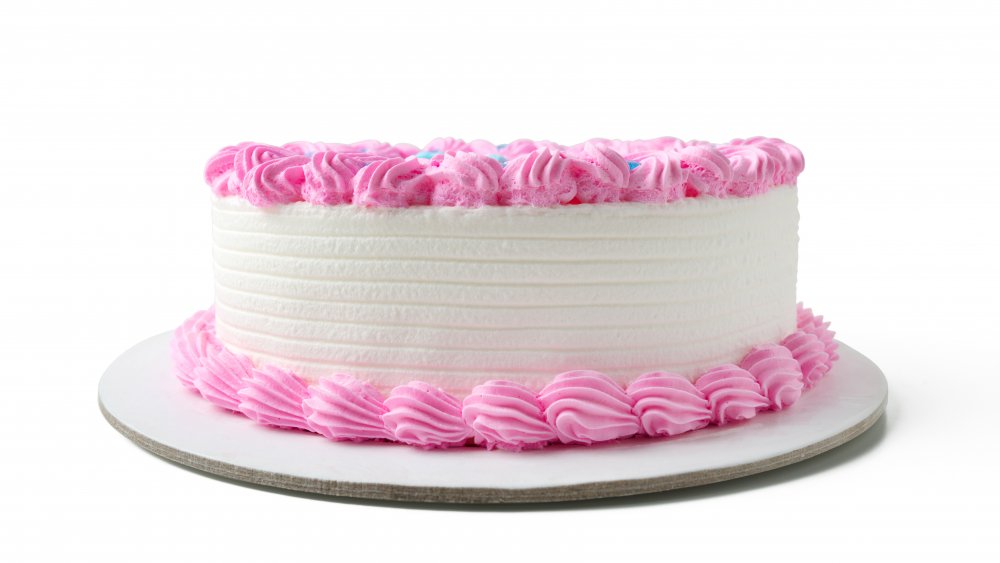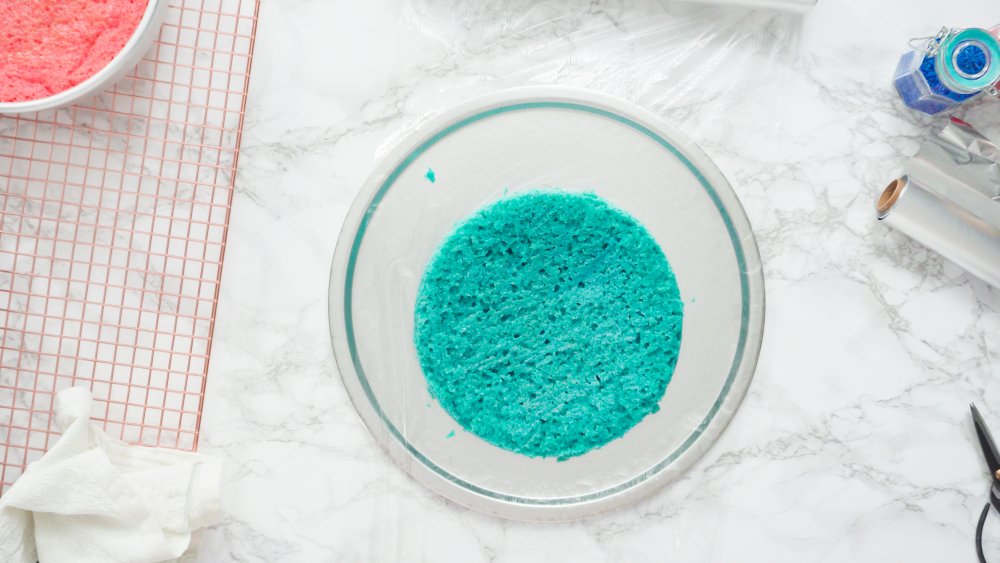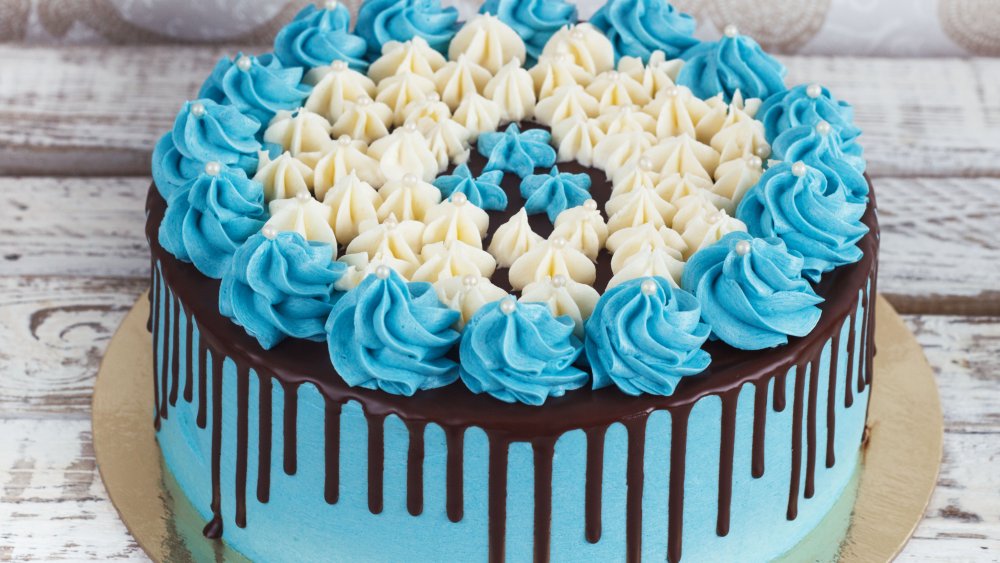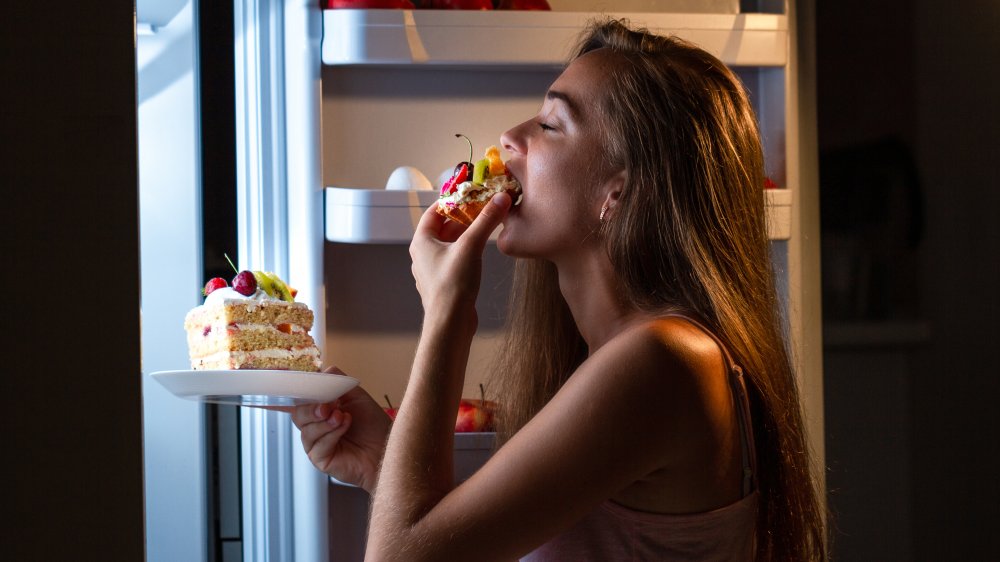Everything You Should And Shouldn't Do When Freezing A Cake
Whether you are baking from scratch or getting a little help from a boxed cake mix, making even the simplest of cakes can still be a time-consuming process — one that you'll sometimes need to complete well in advance of cake-serving time.
This is actually no problem at all, since cakes lend themselves very well to being kept in the freezer. In fact, freezing your cake might make it taste even better than it would have if sliced and served fresh from the oven (via CakeBoss). Not to mention, there's zero risk of burning your mouth! And yes, you can also freeze cakes after they've been frosted.
How to freeze a cake
To properly freeze a cake, it's vital to let your cake layers cool completely when they come out of the oven. Then, you'll wrap each layer separately in plastic wrap while creating a tight seal so as to protect the cake from being exposed to any freezer air.
You'll then need to add an additional protective layer of aluminum foil, again wrapping and sealing it thoroughly. Label your cake with the date you put it into the freezer — a frozen cake should stay edible for several months, but it's not the kind of thing you want to leave in there until the next ice age.
How to freeze a frosted cake
Freezing a cake that's already been frosted can actually help to insulate the cake and keep it even moister than an unfrosted, frozen cake would be, since the icing layer creates an added barrier between the cake and the cold, drying air.
Before you store your frosted cake in the freezer, though, you'll need to put it in there on a tray and freeze it, uncovered, for at least four hours until the frosting — and the cake — are entirely solid. Remove the frozen cake, wrap it tightly in plastic wrap and then foil, and return it to the freezer.
What you shouldn't do when freezing a cake
There are a few things you definitely should not do when freezing a cake. Food safety guidelines dictate that you should not wrap just-baked cake layers while they are still warm, as warm cake could allow dangerous bacteria to breed. You should also avoid storing a wrapped cake toward the front of your freezer, as this part will warm up a little each time you open the door. This will allow the cake to thaw a little, and then refreeze, and each time this happens it gets a tiny bit less moist and tasty.
Finally, when you are thawing your frozen cake, avoid taking the wrappings off an unfrosted cake before it has fully thawed, since condensation will form on the outside of the wrapper and you don't want this on your cake. With a frosted cake, the wrappings will need to be removed after two hours of thawing time, though, since otherwise the frosting might stick to the wrapper.
If you follow these cake freezing tips, you really can have your cake and eat it, too — at a more convenient time.



